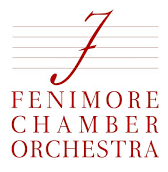Lasting Impressions by T. Stephen Wager
FCO: An Ideal Realized

One of those glorious late-spring days greeted the return of the Fenimore Chamber Orchestra to Christ Church in Cooperstown for the final concert of the season. To open the program, Cervantes’ errant knight Don Quixote made his presence known via Telemann’s “Burlesque de Quixotte.” In this instance, Telemann has produced his own musical novel. Telemann chooses, however, the errant side of Don Quixote, as an old and crazy man. There was nothing errant about the performance presented by Maestro Maciej Żołtówski, conducting from the harpsichord, and the orchestra. The title of the movements, provided by Telemann himself, were easily evident and, especially in the case of the windmills, given loving and charming nuance.
You have reached your limit of 3 free articles
To Continue Reading
Our hard-copy and online publications cover the news of Otsego County by putting the community back into the newspaper. We are funded entirely by advertising and subscriptions. With your support, we continue to offer local, independent reporting that is not influenced by commercial or political ties.

